Its 15 June and therefore Queen’s Birthday Honours time once again. This year’s selection of stars of stage, screen, sport, business, politics and any other form of life for which congratulatory titles and suffixes to the name are deemed necessary have been announced, and the luvvies concerned are basking in the glory and trying to sound humble.
Anyone who knows me at all well will also know my attitude to the UK honours system, and if I were to summarise that attitude for the benefit of anyone who doesn’t yet know me that well, it would be that I find the system indefensible, patronising, corrupt, pointless and demeaning.
Worse than that, the fancy titles and references to the British Empire even in 2013 is to me utterly nauseating, though recipients go through the throes of grovelling at their new status symbols. The fact that the system is deferential to the monarch and retains religious overtones doesn’t help either – speaking personally, I would not wish to be associated with any such forelock-tugging.
Think I’m wrong? Read these and tell me that the traditions they represent are not obsolete and anachronistic:
| Complete name | Ranks / Letters | Ribbon | Established | Founder | Motto | Awarded to/for | Associated awards | |
|---|---|---|---|---|---|---|---|---|
| The Most Noble Order of the Garter | Knight (KG) Lady (LG) |
|
23 April 1348 | King Edward III | Honi soit qui mal y pense (“Shame upon him who thinks evil of it”) | Relating to England and Wales | None | |
| The Most Ancient and Most Noble Order of the Thistle | Knight (KT) Lady (LT) |
|
29 May 1687 | King James VII & II | Nemo me impune lacessit (“No one provokes me with impunity”) | Relating to Scotland | None | |
| The Most Honourable Order of the Bath | Knight/Dame Grand Cross (GCB) Knight/Dame Commander (KCB/DCB), Companion (CB) |
|
18 May 1725 | King George I | Tria iuncta in uno (“Three joined in one”) | Civil division: senior civil servants; Military division: senior military officers | None | [9] |
| The Most Distinguished Order of Saint Michael and Saint George | Knight/Dame Grand Cross (GCMG) Knight/Dame Commander (KCMG/DCMG) Companion (CMG) |
|
28 April 1818 | King George IV (as Prince Regent) | Auspicium melioris ævi (“Token of a better age”) | Diplomats and colonial service | None | [10] |
| The Distinguished Service Order | Companion (DSO) – plusbars |
|
6 September 1886 | Queen Victoria | None | Military officers in wartime | None | [11] |
| The Royal Victorian Order | Knight/Dame Grand Cross (GCVO) Knight/Dame Commander (KCVO/DCVO) Commander (CVO) Lieutenant (LVO) Member (MVO) |
|
21 April 1896 | Queen Victoria | Victoria (“Victory”) | Services to the Crown | The Royal Victorian Medal, The Royal Victorian Chain | [12] |
| The Order of Merit | Member (OM) |
|
23 June 1902 | King Edward VII | For merit | Military, science, art, literature, culture | None | |
| The Imperial Service Order | ISO |
|
8 August 1902 | King Edward VII | For faithful service | Civil servant for 25 years (in administrative or clerical capacity) | The Imperial Service Medal | |
| The Most Excellent Order of the British Empire | Knight/Dame Grand Cross (GBE) Knight/Dame Commander (KBE/DBE) Commander (CBE) Officer (OBE) Member (MBE) |
|
4 June 1917 | King George V | For God and the Empire | Miscellaneous (military and civil) | The British Empire Medal | |
| The Order of the Companions of Honour | Companion (CH) |
|
4 June 1917 | King George V | In action faithful and in honour clear | Arts, science, politics, industry, religion | None |
But before I begin analysis of why I feel that way, perhaps a tighter definition is required. I detest the flummery, monarchic nonsense, politicisation and much more besides about the British system, but a deeper question needs to be asked: is there a purpose behind honours in the first place?
After all, nary a country in the world is without its own distinct form of gongs to award to people for heroic service and/or achievement in one form or another, often military awards for bravery, but often civilian awards too. The USA eschews Sirs, Lords and Ladies, but they do have their own hierarchy of civilian awards, topped by the Congressional Gold Medal and the Presidential Medal of Freedom, even if such awards are not spread around like confetti. Everywhere you look there are hierarchies of honours – France, Germany, Italy, Japan, Russia, Sweden, Thailand, Australia, Canada, New Zealand…. the list goes on and on. Why would the citizens of these and many other countries feel the need for such awards? In fact, only China and Ireland are significant by their lack of honours, but then China offers many other forms of advancement for social discipline and conformance.
The UK honours system was thoroughly reviewed in 2004 by Sir Haden Phillips, Permanent Secretary to the Department of Constitutional Affairs. His report made a total of 31 recommendations. though none in truth would be described as radical or revolutionary, and it was never in his terms of reference, still less in Phllips’s personal interest to suggest the dismantling of the honours system in its current form.
It’s a fair question to ask whether we or any nation need to offer any form of official recognition, whether or not they take the archaic forms found in the UK. The rationale and justification for honours made in the Phillips report makes for interesting reading:
he honours system derives from the simple and laudable wish to recognise exceptional service and achievement and to show gratitude publicly. Unlike other awards systems in the UK, it provides distinctive recognition by the State – in our constitution, by the Sovereign, as Head of State. As will be seen in the section on foreign systems below, there are very few countries indeed that do not have some form of state honours system. Although some argue for abolition of the honours system, there is no general pressure for this. Indeed, the high rate of acceptance of the honours themselves (around 98%) suggests that they are highly valued. The value is not only highly prized by the recipients themselves but by their families and friends and sometimes whole communities, who feel vicarious pleasure at the award of an honour or by the fact that their walk of life or part of the country has been recognised. We know this from letters and recorded reactions following the award of honours. Certainly, some argument surrounds the form that the honours system should take but there is general agreement that some form of national honours system should exist so that the country can give a public thank you to those who have demonstrated achievement and exceptional service.
So in short, because those who do receive them don’t complain and people have more pressing things to worry about, honour must be good news. Forgive me for not buying that version – they exist because they exist, not because it is the right thing to do, nor necessarily the best way to reward people who have excelled or offered a lifetime of true devotion to duty.
Ah, but there has been since 1993 a system of public nominations to reward those whose service above and beyond the call of duty is selfless and without financial reward. Such people are sometimes awarded an MBE for their pains, but in my view are more deserving than those in high office who are awarded the knighthoods and baronetcies.
After all, many who receive them are people who gain awards merely for doing their job, for which they are paid, often handsomely. Why, for example, should politicians and senior civil servants automatically receive an array of honours? There is plenty of patronage in the form of kicking failed politicians up to the House of Lords with a life peerage or buying off troublemakers with a knighthood. Worse still, the stench of corruption still hangs over those in business who are prepared to buy honours through political donations or favours behind the scenes. Only when the cash for honours scandal and the scams to get around the rules (eg. loans) become public has this practice ever been scrutinised. You may remember the recent cases, though it has gone on for generations, not least at the hands of Lloyd George.
Seems the 1925 Honours (Prevention of Abuses) Act did not seem to stop the practice of patronage in the slightest, just made the participants more careful in how they go about it. Yet according to Phillips:
No honours should be awarded as a result of financial donations to political parties. In addition there is a stated policy on benefactions generally, since there are sometimes accusations that these are a way of ‘buying’ honours.
And:
Before making a recommendation, enquiries are made to ensure that there is nothing in the individual’s character that would make them unfit to receive an honour. For example, a past criminal conviction or a civil judgement reflecting on the probity of the individual would be taken into account. These incidents may not prevent an award being made (particularly where the incident occurred some time ago) but the circumstances must be explained to those considering the nomination. No inquiry is made into political allegiance or views.
Call me a cynic, but I’m less than convinced that selections are solely on the basis of merit and not services rendered to the high and mighty. Nor do the investigations into the background of recipients necessarily uncover the truth – Sir Jimmy Savile, for example? Some are stripped of honours on the subsequent discovery of misdeeds – Sir Fred Goodwin being one obvious example. Funny then that the same fate did not befall jailed Tory Lords Taylor, Hanningfield or Archer, to name but three.
Getting back to the point, do most people really expect to have their service and achievements topped up with state-sanctioned awards? Not at all. Do awards go to the most deserving? Why some and not others, you may well ask. According to Phillips, the criteria are thus:
The overriding principle is that awards should be made on merit. Merit for honours is defined as:Specific attention is paid to people who:
- achievement
- exceptional service.
- have changed things, with an emphasis on practical achievement;
- have delivered in a way that has brought distinction to British life and enhanced the UK’s reputation in the area or activity concerned or which has contributed in a distinctive way to improving the lot of those less able to help themselves;
- are examples of the best sustained and selfless voluntary service;
- have demonstrated innovation and entrepreneurship which is delivering results;
- carry the respect of their peers and are role models in their field; and
- have shown sustained achievement against the odds which has required moral courage in making tough choices and hard applications.
In addition, they have the discretion to make multiple awards on the same person:
f someone who has already been honoured has made a significant additional contribution deemed worthy of a further award, he or she would not normally be recommended until an interval of five years had elapsed since the first award. There are occasional exceptions to this, but the case must be very strong to succeed. For example an industrialist honoured with a CBE would not in general be considered for appointment as knight bachelor until five years later and only after significant further achievement to justify consideration at a higher level. It is not desirable to give two honours at broadly the same level to the same person. Only exceptionally would it be seen as appropriate to recommend an existing knight bachelor for a KBE or a senior civil servant who has a CBE/CMG for a CB.
However, other factors come into play, such as timing, which in practice some blameless individuals wait a lifetime while others are rewarded as a knee-jerk reaction, possibly by politicians wishing to bask in reflected glory (remember Harold Wilson posing with the Beatles after their MBE awards?)
There is more than a degree of complicity about the sordid and grubby nature of honours, once you scrape beneath the surface and leave to one side the few genuinely deserving cases, but even without these undertones I would question whether any awards are truly relevant to today’s society. It’s about time that we return to simplicity of values, whereby achievement , excellence and merit are rewarded by opportunity and recognition by one’s peers, not by arcane awards. Were I in a position to have my achievements rewarded, I would much sooner have the recognition direct from my fellows, people who appreciate first hand what I have done, not by an anonymous committee that at best makes serious errors of judgement and whose decisions are frequently called into question.
Does having an honour imply you are better or of higher status than your neighbour? He or she may have lived a perfectly blameless life without needing to be in the public eye. If you got your MBE for standing on the local council for a few years, does that mean your chosen life is more worthy? Certainly not.
If we do need state-sponsored honours, the whole system should be modernised, simplified and tightened up, farcical titles removed, monarchy and religion removed from the equation, and the giving or taking of awards for corrupt motives punishable directly.
Finally, this Guardian article puts it in perspective:
Poor old martyred Mr Fred Goodwin. According to ex-CBI supremo Lord Digby Jones, this latter-day Joan of Arc is the victim of a “lynch mob” mentality. Quite right: it’s the unemployed and poor who are supposed to get a kicking from the tabloids, not multimillionaire pillars of the establishment. Has the world gone mad?
But now the poor bloke has had his knighthood shredded, it’s a good time to rethink the whole honours system. For a start, handing out “Orders of the British Empire” strikes me as more than a little tasteless in the first place. Poet Benjamin Zephaniah turned down his OBE nearly a decade ago because “it reminds me of how my foremothers were raped and my forefathers brutalised”. He has a point: as a country we’re far from coming to terms with the barbarity of empire. As Mike Davis points out in the seminal Late Victorian Holocausts, millions of Indians starved to death in unnecessary famines under British rule. It is surely possible to recognise achievements without celebrating this murderous era.
It’s not just the name that’s the problem, though. These days, we barely even blink at the fact honours are routinely handed out by prime ministers to their mates or to establishment patsies. Sometimes it appears that contributions to party coffers – rather than to society – is the way to go about getting a knighthood. I’m sure we can all be proud of hedge fund manager Paul Ruddock being knighted this year for his inspiring contribution to British society, namely services to the arts. One of his most notable contributions was making £100m for Lansdowne Partners’ investors out of the collapse of Northern Rock, and depositing £500,000 in Tory party bank accounts since 2003.
Those who have actually made contributions to society generally end up with the bargain basement honour, the MBE. I’m pretty confident that Maureen Adams, handed an MBE this year for dedicating her career to helping those affected by HIV/Aids, has had more of a positive net impact on society than, say, Centrica chairman Roger Carr, who was knighted last year after prices were raised by 7% just as winter approached.
So let’s ditch the whole system and start from scratch. This morning, the BBC’s Evan Davis proposed that, if he ran the system, “honours would go to people whose material compensation vastly under-rewards them for their achievements”. That’s a great place to start, although those that society depends on to function and who often scrape by on poverty wages should, of course, be paid properly, too.
But if we’re going to have honours, they should surely reflect people’s social worth. The New Economics Foundation found that for every £1 a hospital cleaner is paid, £10 of social value is created. City bankers, on the other hand, destroyed £7 for every £1 they created. But who is more likely to be honoured as things stand?
So here’s my suggestion. Instead of knighthoods for wealthy parasites, let’s have a new honour, which could be called Pillars of Society. The title would be pretty self-explanatory. Establishment types would be barred; let’s stop celebrating wealth and power for the sake of it. Instead, let’s start by recognising the efforts of those increasingly demonised as “vested public sector interests” who “leach off the taxpayer”: like nurses, refuse collectors, lollipop ladies, teachers, and so on.
There’s a whole host of other Pillars of Society, too: community workers; activists who dedicate their lives to fighting racism, sexism and homophobia; trade union reps who fight the corner of workers in the workplace; those who fight for the sick and disabled; volunteers and charity workers; and those who show great bravery or commit great sacrifices for others.
Instead of starting every year with a roll-call of millionaires, senior civil servants and royal servants, we’d have an inspiring insight into the best British society has to offer. It would provide a much-needed platform for those we all depend on, but who are normally marginalised or completely ignored.
Of course, such an honours system would mean challenging the way we look at society. Rather than venerating the well-heeled and well-connected, we’d be more interested in championing working people and those who fight to make Britain a better place.
Oh, and I’d like to get the ball rolling by nominating my Pillar of Society: Helena Button, who was an inspiring primary school teacher. Let’s hear your nominations.
• This article was amended on 3 February 2012. The original said that Paul Ruddock was “knighted this year for his inspiring contribution to British society: most notably, making £100m out of the collapse of Northern Rock, and depositing £500,000 in Tory party bank accounts since 2003”. This has been corrected.

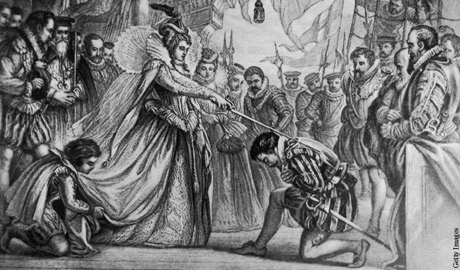
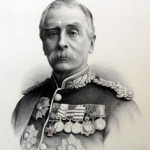
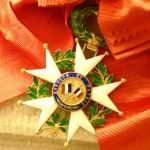
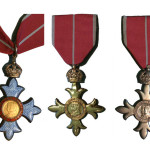
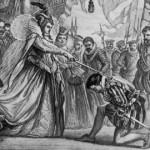

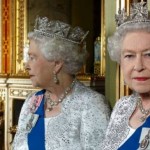
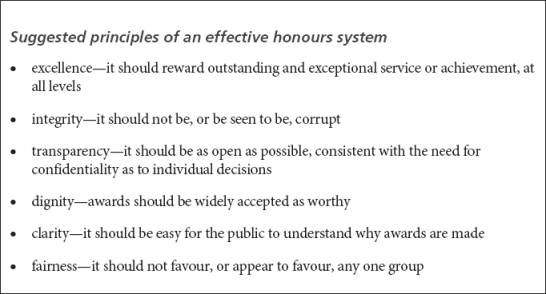
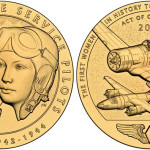
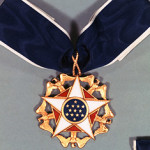
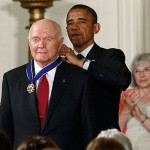
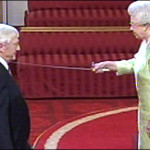
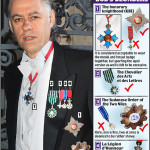
Thankyou for this howling post, I am glad I observed this internet site on yahoo.
Very nice post. I definitely appreciate this site. Stick with it!
Hey there! Would you mind if I share your blog with my myspace group? There’s a lot of people that I think would really enjoy your content. Please let me know. Many thanks
Very efficiently written post. It will be beneficial to anybody who employess it, including yours truly :). Keep up the good work – looking forward to more posts.
At this time it sounds like Drupal is the preferred blogging platform out there right now. (from what I’ve read) Is that what you’re using on your blog?
Hello! I’ve been reading your web site for a long time now and finally got the courage to go ahead and give you a shout out from Humble Tx! Just wanted to tell you keep up the great work!
Fantastic blog! Do you have any tips for aspiring writers? I’m hoping to start my own website soon but I’m a little lost on everything. Would you recommend starting with a free platform like WordPress or go for a paid option? There are so many options out there that I’m completely overwhelmed .. Any ideas? Thanks!